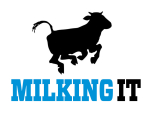Advertising wine in New Zealand is subject to strict regulatory requirements.
It is important that all businesses know and understand their legal responsibilities when advertising and promoting their products. This article summarises the key regulatory requirements relevant to the advertisement and promotion of wine and provides some tips to help ensure your business can successfully navigate your obligations.
Your Obligations
Alcohol advertising and promotion must comply with relevant New Zealand legislation, as well as the Advertising Standards Authority (ASA) Code for Advertising and Promotion of Alcohol and the Advertising Standards Code.
Legislative Requirements
Key obligations relating to advertising and promotion are set out in the Sale and Supply of Alcohol Act 2012. Under the Act, businesses must not:
- Encourage excessive consumption of alcohol - this applies anywhere.
- Promote or advertise alcohol in a way that is aimed at or likely to have special appeal to minors.
- Promote or advertise discounts on alcohol of 25% or more, anywhere that be seen or heard from outside a licensed premises. This does not apply to promotions or advertisements in a catalogue, or similar price list, of a remote seller.
- Promote or advertise free alcohol.
- Offer goods, services or prizes on condition that alcohol is purchased.
There is a raft of other legislative requirements that businesses need to be aware of when advertising or promoting their wine. This includes the Gambling Act 2003 which prohibits offering alcohol as a prize for gambling activities, for example raffle prizes. Provisions of the Fair Trading Act 1986 that prohibit false or misleading representations about goods or services also apply.
ASA Codes
Businesses must also comply with the ASA Codes for Advertising and Promotion of Alcohol (the Code) which sets out strict requirements for alcohol advertising in New Zealand. The Code applies broadly to advertisements that are for the purpose of promoting alcohol:
- An advertisement includes: radio, print, out of home, cinema, digital, websites, your social media pages and even product labelling. It also includes 'user-generated content' over which you have control (e.g. posts by people on your Facebook page). The ASA expects advertisers to monitor user-generated content on their sites and remove anything that does not comply with the law or with the Code.
- The Code applies to advertisements that are for the purpose of promoting alcohol. This is very broad and will capture most members' promotional activity. It includes promoting alcohol products, brands, producers, importers, distributors, retailers and premises.
- Zero alcohol products are also captured if the products resemble alcohol products (e.g. brand extension).
If the Code applies, specific requirements are engaged. Generally, the Code is focused on placement (where you put your ads) and content (what you put in your ads). Rules in the Code include:
- Marketing should be directed at the appropriate demographic, avoiding targeting minors. Age-gating of social media is important.
- Minors (anyone under 18) or women that are visibly pregnant or breastfeeding cannot be shown.
- While people shown in your advertising must usually be 25 or older, you can show 18-24 year olds in your advertising if they are:
- real people in real situations (ie not a paid actor);
- your staff who are employed to serve or offer wine samples; or
- part of a crowd scene from an R18 event, with appropriate appearance and behaviour for people that age and older.
There are also special rules for Alcohol Sponsorship Advertising and Promotion (i.e. advertising that promotes the sponsored party). Even if the Code does not apply, all advertisements are subject to the general Advertising Standards Code, and advertisers must act with a due sense of social responsibility to consumers and safety.
Tips for Compliance
While it seems like there are a lot of requirements, businesses can successfully navigate their responsibilities by:
- Understanding your legal obligations: familiarise yourself with the legislative requirements and The Code.
- Training and education: provide training to staff involved with marketing and advertising to ensure they know what is expected.
- Review promotions: review your promotions and advertisements regularly for compliance. “Sense check” them with a colleague not involved with the creation of an advertisement to see what they take out of it.
- Get independent advice: if in doubt – seek advice from professionals e.g. The Liquor Advertising and Promotion Pre-vetting Service to ensure compliance.
If you have any queries about the requirements for your alcohol advertising and promotions, please contact
This email address is being protected from spambots. You need JavaScript enabled to view it.














